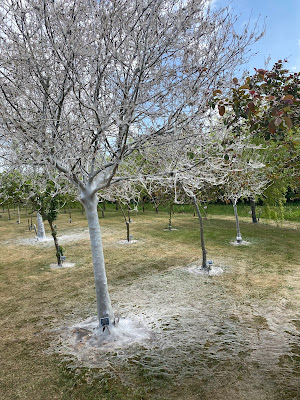I do like a good preface, whether it be Johnson's sonorous Preface to his dictionary, beginning 'It is the fate of those who toil at the lower employments of life, to be rather driven by the fear of evil, than attracted by the prospect of good; to be exposed to censure, without hope of praise; to be disgraced by miscarriage, or punished for neglect, where success would have been without applause, and diligence without reward. Among these unhappy mortals is the writer of dictionaries...' – or, in a very different register, this one, from the reissue of John Betjeman's youthful treatise Ghastly Good Taste:
'I wrote this book 38 years ago. I was 26, in love, and about to be married. When Anthony Blond said he would like to reprint it, I thought I had better read it, and he kindly sent me a copy. I am appalled by its sententiousness, arrogance and the sweeping generalisations in which it abounds...'
Or here's Sylvia Townsend Warner's preface to Mr Fortune's Maggot, a story the first third of which came to her readymade in a dream –
'I was really in a very advanced stage of hallucination when I finished the book - writing in manuscript and taking wads of it to be typed at the Westbourne Secretarial College in Queens Road.
I remember writing the last paragraph - and reading over the conclusion, and then impulsively writing the Envoy, and beginning to weep bitterly...'
Scarcely less dramatic is Edith Sitwell's preface to her extraordinary autobiography, Taken Care Of –
'This book was written under considerable difficulty. I had not recovered from a very severe and lengthy illness, which began with pneumonia. The infection from this permeated my body, and the bad poisoning of one finger lasted for fifteen months. This was agonisingly painful, and I could only use either hand with great difficulty, as the poison spread gradually. The reminiscences in this book are of the past. I do not refer to any of my dearly loved living friends. I trust that I have hurt nobody. It is true that, provoked beyond endurance by their insults, I have given Mr Percy Wyndham Lewis and Mr D.H. Lawrence some sharp slaps. I have pointed out, also, the depths to which the criticism of poetry has fallen, and the non-nutritive quality of the bun-tough whinings of certain little poetasters – but I have been careful, for instance, not to refer to the late Mr Edwin Muir (Dr Leavis's spiritual twin-sister). I have attacked nobody, unless they first attacked me. During the writing of certain chapters of this book, I realised that the public will believe anything – so long as it is not founded on truth.'
And here's one, short and to the point, that I read only yesterday –
'The title of this book is meant to be "arresting" only in the literal sense, like the signs put up for motorists: "ROAD UNDER REPAIR", etc. It means that the book will have little interest for people under forty years of age. The world broke in two in 1922 or thereabouts, and the persons and prejudices recalled in these sketches slid back into yesterday's seven thousand years.Thomas Mann, to be sure, belongs immensely to the forward-goers, and they are concerned only with his forwardness. But he also goes back a long way, and his backwardness is more gratifying to the backward. It is for the backward, and by one of their number, that these sketches were written.'
The 'arresting' title is Not Under Forty, and the author is Willa Cather. So far I have only read the first of the collection, 'A Chance Meeting', and it's a gem. It begins like a short story, with Cather, staying at the Grand Hotel in Aix-les-Bains, becoming increasingly fascinated by a very striking old lady who is a fellow guest. They begin to talk, but it is some while before they converse properly and Cather realises, to her astonishment and delight, who the mysterious lady is – Flaubert's beloved niece Caroline, who was taken in by the author and his mother after her mother died, and was raised in the Flaubert household. What follows is a fascinating discussion of Flaubert's works, illuminated by his niece's insights and experience, and by Cather's own profound appreciation of his works. I shall read on...
I have a feeling that even readers under forty might get a lot from this collection.








